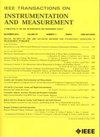基于主动机器学习的稀疏近场扫描自动停止准则
IF 5.6
2区 工程技术
Q1 ENGINEERING, ELECTRICAL & ELECTRONIC
IEEE Transactions on Instrumentation and Measurement
Pub Date : 2025-06-02
DOI:10.1109/TIM.2025.3575984
引用次数: 0
摘要
主动学习(AL)已被证明可以自适应采样重要点来重建完整的电磁场,从而加速近场扫描(NFS)测量。然而,主动学习采样的自动停止准则仍然缺乏,停止采样的决定通常是人工做出的。由于与全扫描结果相比,稀疏样本的真值误差未知,我们提出了一种基于统计估计的最坏情况预测误差的新型停止准则。当未采样位置的最大预测误差低于用户设定的阈值时,基于人工智能的NFS进程将终止,可以灵活直观地满足用户在各种实验场景下的精度要求。本文提出的停止准则为稀疏NFS测量提供了足够的精度和合适的样本量,并通过仿真和测量实例进行了验证。本文章由计算机程序翻译,如有差异,请以英文原文为准。
Automated Stopping Criterion for Sparse Near-Field Scanning With Active Machine Learning
Active learning (AL) has been demonstrated to accelerate near-field scanning (NFS) measurement by adaptively sampling the significant points to reconstruct the complete electromagnetic field. However, an automated stopping criterion for active-learning sampling is still lacking, and the decision to stop sampling is often made manually. Since the ground-truth error using sparse samples compared to the full scanning resultisunknown,we proposea novel stopping criterion based on a statistically estimated worst case predicted error. The AL-based NFS process will be terminated when the maximum predicted error at the unsampled positions falls below a user-defined threshold, which can flexibly and intuitively satisfy the accuracy requirements of users in various experimental scenarios. The proposed stopping criterion provides sufficient accuracy and appropriate sample size for sparse NFS measurement, which is validated through both simulation and measurement cases.
求助全文
通过发布文献求助,成功后即可免费获取论文全文。
去求助
来源期刊

IEEE Transactions on Instrumentation and Measurement
工程技术-工程:电子与电气
CiteScore
9.00
自引率
23.20%
发文量
1294
审稿时长
3.9 months
期刊介绍:
Papers are sought that address innovative solutions to the development and use of electrical and electronic instruments and equipment to measure, monitor and/or record physical phenomena for the purpose of advancing measurement science, methods, functionality and applications. The scope of these papers may encompass: (1) theory, methodology, and practice of measurement; (2) design, development and evaluation of instrumentation and measurement systems and components used in generating, acquiring, conditioning and processing signals; (3) analysis, representation, display, and preservation of the information obtained from a set of measurements; and (4) scientific and technical support to establishment and maintenance of technical standards in the field of Instrumentation and Measurement.
 求助内容:
求助内容: 应助结果提醒方式:
应助结果提醒方式:


